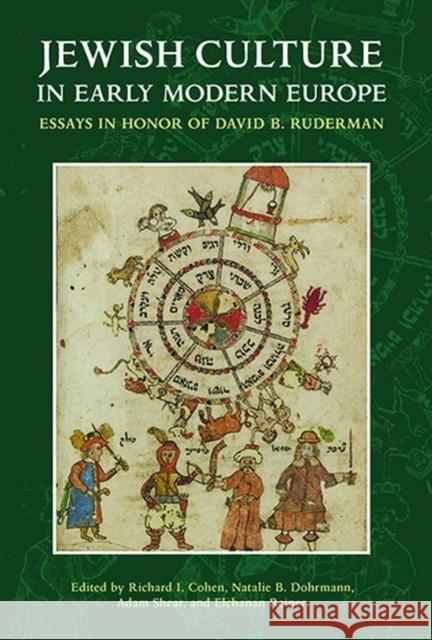Jewish Culture in Early Modern Europe: Essays in Honor of David B. Ruderman » książka
Jewish Culture in Early Modern Europe: Essays in Honor of David B. Ruderman
ISBN-13: 9780822944331 / Angielski / Twarda / 2014 / 408 str.
In the last two decades, Jewish historians worldwide have developed and refined the discussion of an early modern period in Jewish culture, spanning roughly three centuries from 1500 to 1800, and have increasingly found this periodization to be a useful heuristic for interpreting historical developments.
Thirty-one leading scholars both within and beyond Jewish studies advance, refine, and challenge how we understand the Jewish early modern period. The collection includes a comprehensive range of topics, beginning by examining authority structures of Jewish communities following the expulsions and migrations that reshaped the geographical contours of the Jewish world. The formation of Jewish communities, communal autonomy, and cultural representations of leadership are explored, pointing to a geographical remapping of a Jewish early modernity that can contribute to a better understanding of the integrated economic and cultural landscape of the time. The volume then moves to consider Jewish intellectual life in light of demographic, political, and technological changeespecially the advent of print culture. From there, the discussion moves to cultural and intellectual interchange, especially between Jews and Christians, and next, to eighteenth-century Jewish culture as a fulcrum of the early and late modernity. Finally, the book concludes by tracing the early modern as it is both etched into and effaced from later eras, reflecting on the project of historiography as both retelling the past and connecting to the past in the present.
Read individually, the essays in this volume are finely detailed case studies that illuminate specific aspects of Jewish culture. Read as a mosaic, the studies combine to form a rich and nuanced portrait of a culture that is both a contributor to and a product of early modern Europe and the Ottoman Empire."











